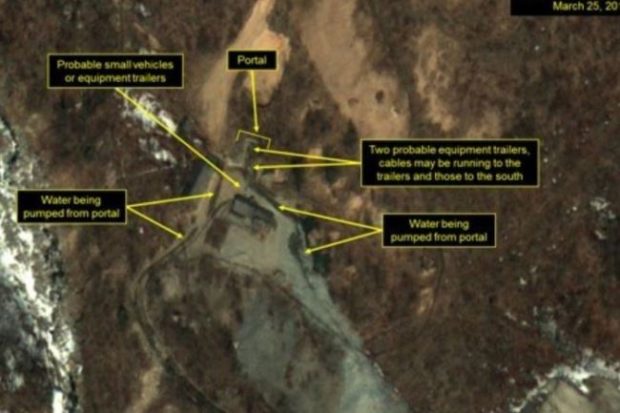
Satellite imagery shows North Korea`s nuclear test site in a photo released by 38 North. THE KOREA HERALD
Defectors who previously lived near North Korea’s nuclear test site showed signs of radiation exposure in the latest medical check-ups, South Korean officials reported on Wednesday.
Since October, the South’s Unification Ministry has been radiation-testing 30 defectors who previously lived in Kilju County, near North Korea’s Punggye-ri nuclear site.
The North has conducted all of its six nuclear tests at the site located in the country’s northeastern province. Concern about the safety of the site, located on the mountainous border with China, peaked in November with reports that the latest nuclear test had triggered a tunnel collapse killing 100 workers.
Chinese scientists warned that if the mountain collapsed, nuclear fallout could spread across “an entire hemisphere”.
The 30 defectors tested are among 114 refugees who have fled the county since North Korea’s first nuclear test in 2006. All of those tested came to the South before the North’s fourth nuclear test, in January 2016.
The ministry said that chromosome examinations showed that four defectors may have been exposed to radiation, though other factors such as age and smoking could have affected the result.
The government said no meaningful results appeared in urine and other tests.
Experts have expressed concern that the series of nuclear tests may have caused radioactive substances to leak into the surrounding area, putting residents’ health at risk.
Exposure to radiation raises the risk of developing leukemia and other types of cancer. The ministry admitted that the latest medical tests represent a small sample and contain limited information.
A lengthy period of time has also passed since those tested were possibly exposed to radiation. Seoul said it would advise North Korean defectors to get their heath checked at regular intervals. It will also carry out further radiation tests on residents who flee the North.